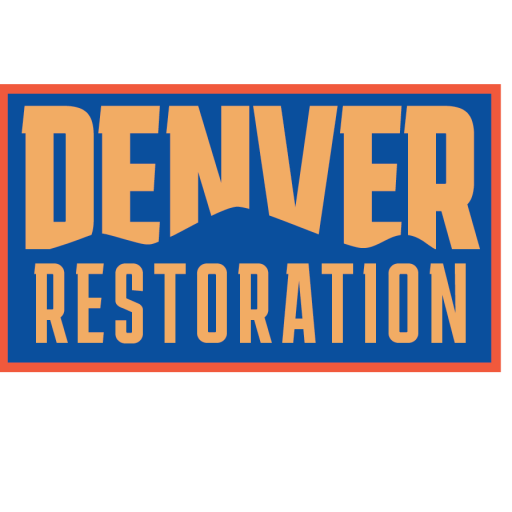Empowering Denver Homeowners: Safeguard Against Flood Risks
For Denver homeowners, unpredictable weather patterns including heavy rainfall, flash flooding, and melting snow often pose significant flood risks. Flooding can cause extensive water damage, expensive repairs, and emotional distress. Fortunately, by understanding local flood risks and implementing proactive measures, you can dramatically reduce potential property damage and protect your loved ones. This guide empowers Denver residents with practical knowledge, effective steps, and essential resources needed to safeguard their homes against flooding.
Recognize the Flood Risk in Denver
Denver, Colorado, is particularly prone to flooding due to the unique combination of seasonal weather changes, melting snowpack, and sudden rainstorms. Even areas not commonly viewed as high-risk can suffer basement flooding or water intrusion following heavy storms or rapid snowmelt.
To fully understand your home’s specific flood risk, the Federal Emergency Management Agency (FEMA) provides updated flood maps. You can easily identify if your home lies within a floodplain using FEMA’s official Flood Map Service Center. Understanding your home’s flood zone status allows you to strategize and implement effective protective measures.
It’s also beneficial to consult local resources. Denver’s local government, through the Denver Office of Emergency Management, regularly updates safety guidelines to help residents understand local flood threats specifically.
Immediate Steps to Protect Your Denver Home
Proactive flood protection involves straightforward yet effective steps you can start immediately:
Maintain Drainage Systems and Gutters
Clogged gutters and downspouts are a common cause of water overflow and basement flooding. Homeowners should regularly inspect and clean gutters, ensuring that rainwater is directed away from the home’s foundation. To learn more about maintaining proper drainage, visit the official guide from the EPA on maintaining stormwater drainage systems.
Install and Maintain a Sump Pump
A well-maintained sump pump is critical for flood prevention. It acts by pumping excess water from beneath your home’s foundation. Regular inspections and annual maintenance ensure it functions properly, especially during heavy rains. For comprehensive details on installing and maintaining sump pumps, visit HomeAdvisor’s guide to sump pump costs and maintenance.
Landscape Properly and Improve Grading
Proper landscaping and grading significantly reduce the risk of basement flooding. Your property should slope gently away from your home’s foundation, directing water runoff safely into drainage systems. Experts recommend consulting professional landscapers or using guidelines provided by Colorado State University Extension on landscaping to control flooding.
Waterproof Your Basement and Foundation
Waterproofing your basement and sealing cracks in foundation walls provide powerful protection against flooding. Both exterior and interior waterproofing solutions are effective. Ensure to contact professionals for thorough waterproofing solutions, as mentioned in our internal page dedicated to water damage restoration services.
Flood Insurance: An Essential Investment
Many Denver homeowners mistakenly believe that standard homeowner insurance covers flood damage. In reality, flood protection usually requires separate coverage through the National Flood Insurance Program (NFIP). NFIP, managed federally by FEMA, provides affordable and reliable flood insurance policies. Learning about flood insurance and getting appropriate coverage is easy; just visit the official FloodSmart website from FEMA.
To better understand how to handle flood-related insurance claims, read our internal guide on “Navigating Insurance Claims After Property Damage”.
Emergency Flood Preparedness Planning
Emergency preparedness helps ensure your and your family’s safety if flooding occurs:
Create an Emergency Kit
Your kit should include essentials such as drinking water, non-perishable food, medications, personal documents, and emergency supplies. For detailed guidance on preparing an emergency kit specific to flood circumstances, visit the official flood preparedness guide at Ready.gov.
Stay Informed
Always monitor trustworthy weather sources, especially during severe weather events. Official sources such as the National Weather Service Denver/Boulder Office provide accurate local flood warnings and alerts.
Develop a Family Evacuation Plan
Establish clear evacuation routes and designate a safe meeting point away from your property. Discuss regularly and practice the plan with your entire household.
Community Resources and Support
When facing flood risks, connecting with neighbors and local communities can offer emotional and practical support. Platforms like Reddit’s Denver community and Quora’s Denver-related topics enable residents to share experiences, ask questions, and receive practical advice during stressful times.
Long-Term Flood Prevention Strategies
Long-term strategies further reduce flood-related risks:
Elevate Key Utilities and Appliances
To avoid expensive repairs after a flooding event, elevate critical home utilities such as electrical boxes, water heaters, and HVAC systems. FEMA offers an insightful Homeowner’s Guide to Retrofitting, which covers practical techniques for protecting your utilities from flooding.
Install Flood Vents and Barriers
Flood vents reduce pressure on foundation walls during floods. For homeowners in flood-prone zones, these vents can significantly reduce structural damage. Be sure to consult a local building professional to choose appropriate venting solutions suitable for your home.
Regular Inspection and Maintenance
Performing regular home inspections will identify potential problems like cracks or drainage vulnerabilities early. Addressing these promptly helps prevent more significant flood damage.
To better understand the restoration process following water damage, explore our internal resource explaining “The Water Damage Restoration Process”.
Professional Flood Damage Restoration in Denver
If flooding does occur, rapid action reduces damage. At Denver Restoration, we specialize in comprehensive flood damage restoration, serving the Denver community with water extraction, drying, mold remediation, and structural repairs. We provide compassionate and professional support during stressful emergencies.
Coping Emotionally with Flood Damage
Flood damage goes beyond physical losses, affecting emotional health profoundly. For emotional support resources, visit the American Psychological Association’s Disaster Resource Network, which provides professional guidance for coping effectively during hardships.
Conclusion: Empowered Homeowners Make Safe Homes
Flood risks in Denver are real and serious, but informed homeowners have effective and proactive tools available. Understanding your risk, taking immediate protective measures, investing in flood insurance, and connecting with local and professional resources lay a strong foundation for managing floods confidently.
Denver Restoration is committed to supporting Denver homeowners with expert services, valuable resources, and compassionate care during flood situations. If you have questions or require immediate assistance, contact us today. Together, we’ll safeguard your home—your most valuable asset.
For comprehensive information about our restoration services, visit our homepage at denver-restoration.com.
↵

